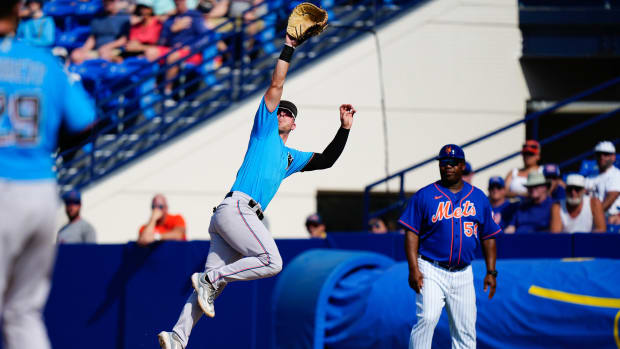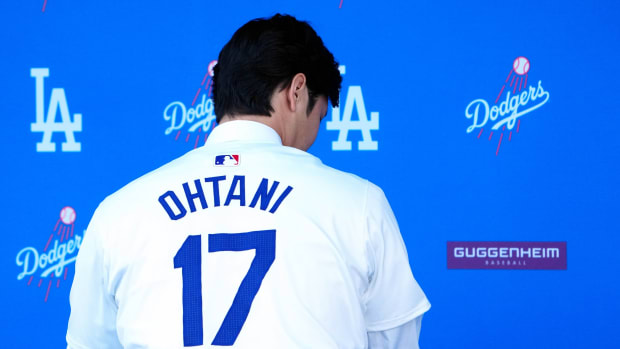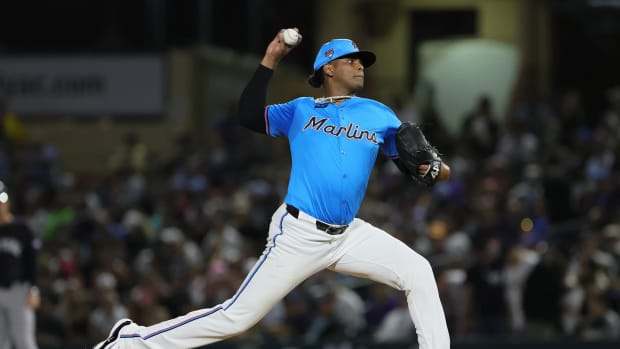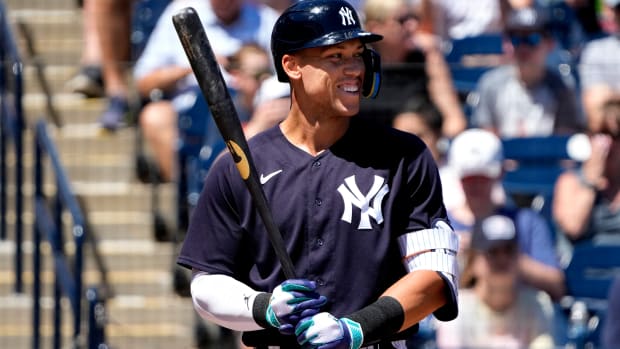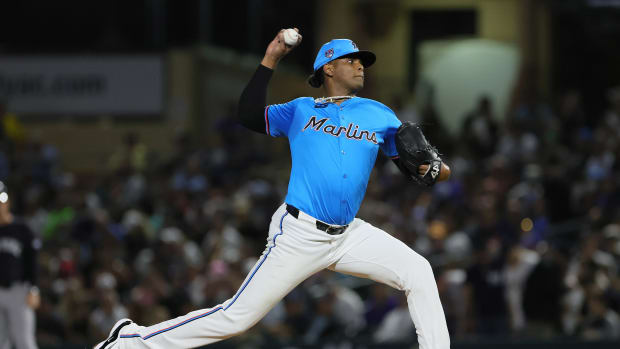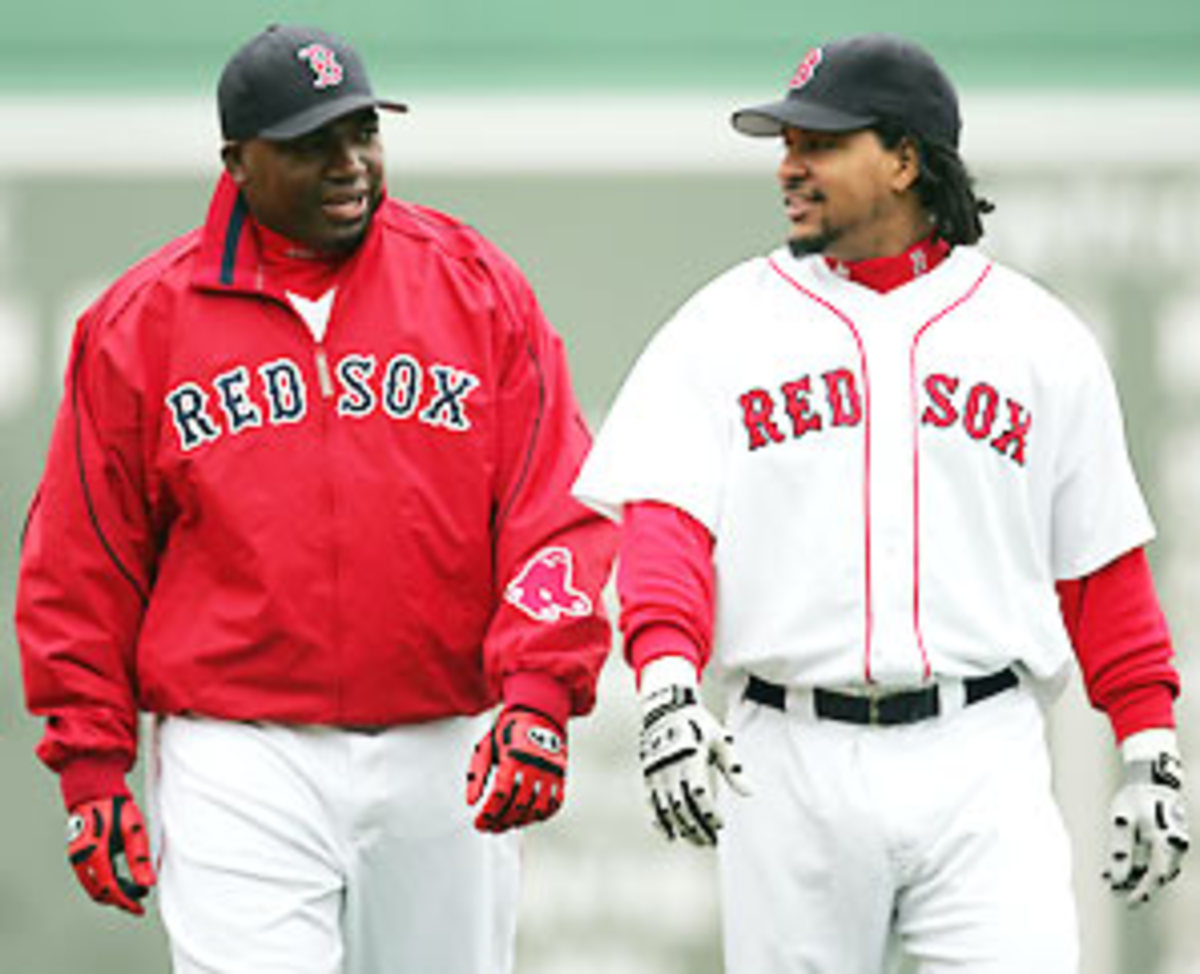
Ortiz says union told him of positive test; Manny reportedly listed, too
"I have already contacted the Players Association to confirm if this report is true. I have just been told that the report is true," Ortiz's statement read in part. "Based on the way I have lived my life, I am surprised to learn I tested positive."
Manny Ramirez, the Dodgers star who has already served a 50-game suspension for a failed test earlier this season, was also named in the Times report. According to The Associated Press, he had no comment other than to direct reporters to call the players' union.
The Times, citing lawyers with knowledge of the results, reported Thursday that Ortiz and Ramirez were on the now-infamous list of 104 players who failed tests during the 2003 survey testing that led to the implementation of a comprehensive testing program the next year. Other names to have been revealed on the list in previous months include Alex Rodriguez and Sammy Sosa. According to the Times, the lawyers did not reveal which drugs the players tested positive for.
Both Major League Baseball and the Players' Association declined comment on the report, according The Associated Press.
After hitting a three-run home run to help beat the A's on Thursday afternoon at Fenway Park, Ortiz spoke briefly with reporters. He said little more than that he didn't have any information and that "I have to get more info about it, and then I'll honestly tell you guys what's up. Right now I have no answers."
Immediately following the game, however, Ortiz released a statement which read: "Today I was informed by a reporter that I was on the 2003 list of MLB players to test positive for performance-enhancing substances. This happened right before our game, and the news blind sided me. I said I had no comment because I wanted to get to the bottom of this. I want to talk about this situation and I will as soon as I have more answers. In the meantime I want to let you know how I am approaching this situation. One, I have already contacted the Players Association to confirm if this report is true. I have just been told that the report is true. Based on the way I have lived my life, I am surprised to learn I tested positive. Two, I will find out what I tested positive for. And, three, based on whatever I learn, I will share this information with my club and the public. You know me - I will not hide and I will not make excuses. I want to thank my family, the Red Sox, my teammates, and the fans for their patience and support."
Both Red Sox manager Terry Francona and GM Theo Epstein echoed Ortiz by saying they too were "blindsided" by the news but pledged their support for their maligned slugger.
"He will deal with it as David always does and be open and be honest," Francona said. "I think he felt all day a lot of caring from his teammates. He's earned it. We'll be very supportive and get to the bottom of whatever needs to be gotten to the bottom of."
"We need some time to get some answers," said Epstein, who admitted that "this could be a distraction if we allow it to become a distraction. It's absolutely the right thing to take a little bit of time to find out what the facts are."
Dodgers manager Joe Torre had yet to comment on Thursday's news, but he had expressed surprise over Ramirez's previous positive test earlier in the season. The Dodgers play in St. Louis tonight.
While Ramirez was already linked to baseball's ever-widening steroids era, this is the first time Ortiz has been connected to performance-enhancing drugs. When Sports Illustrated reported in February that Alex Rodriguez had tested positive for steroids in 2003, Ortiz said any player who tested positive should be suspended for an entire season.
Ramirez, now with the Los Angeles Dodgers, just returned from his suspension July 3. At the time, he said, "I want to make clear I've passed about 15 drug tests over the past five seasons." Ramirez has long been one of the game's premier hitters, and this season is batting .327 with 11 home runs and 37 RBIs in 48 games.
Ortiz took a different path to stardom. He had the best year of his Twins career in 2002, hitting .272 with 20 home runs and 75 RBIs, but Minnesota released him that December. He signed a one-year, $1.25 million deal with the Red Sox in early 2003 then put together a .288 season with 31 home runs and 101 RBIs, the beginning of a five-year stretch in which he had at least 30 home runs and 100 RBIs every season. He was the ALCS MVP in 2004 as the Red Sox defeated the Yankees, becoming the first team in baseball history to overcome a 3-0 series deficit. Ramirez won World Series MVP honors that same year after the Red Sox swept the Cardinals. Three years later, the duo again combined to carry Boston to another World Series title.
Ortiz and Ramirez emerged as two of the most popular players on those Red Sox teams for their hitting exploits and their colorful personalities. They were hailed as the best slugging tandem in decades, but they were broken up exactly one year ago Friday, when Ramirez was traded to the Dodgers. While Ramirez continued to excel in leading the Dodgers to the NL West title, Ortiz endured a miserable stretch after suffering a wrist injury. He has slumped badly this season, batting a career-low .228 with 14 home runs and 58 RBIs.
In a postgame interview aired on NESN, A's infielder Nomar Garciaparra, who played with Ortiz and Ramirez in Boston, called the list "unfair to players" because the list of names was supposed to remain anonymous. He also claimed that some players were so in favor of a comprehensive testing program that they allowed their names to be counted as positive tests during the 2003 survey testing in order to raise the number of positive results, thus triggering a full testing program.
The list included the names of players who tested positive during survey testing, implemented for the 2003 season to determine whether or not baseball needed a full-fledged testing program. When enough players tested positive, a comprehensive testing program was put into place beginning with the 2004 season. Under the current rules, a first positive test mandates a 50-game suspension, but Ortiz and Ramirez are not subject to those guidelines in this case because their positive tests came before the rules applied.
The federal government seized the results during an investigation into the use of PEDs in sports.
"I knew guys who didn't take the test just to be positive because they wanted testing," Garciaparra said. "Are those guys on the list? I don't know. I don't know. There's literally guys who said I'm not taking it go ahead and put me positive because I want the number to be above, because they wanted steroids testing. If those guys are on the list, how about that, now they're going to be looked at like 'You're positive,' like wait a minute, 'I just didn't take it because I wanted it to be done.' The whole thing was, 'Listen, with five percent or more we're going to have it, if it's under five percent there's not going to be any testing.' And guys, a lot of guys, were like, 'Yeah, we want to have testing' and I was one of them. So guys even refused to go [get] tested just because well what's the repercussions, I'll just refuse it and the number will be high and we're gonna have it. People don't talk about that and that happened so that's why I'm saying this list is unfortunate."
Asked it he had concerns about the time about the list remaining anonymous, Garciaparra said, "Me personally? No I didn't have any concerns. I knew I didn't have to worry about anything."
VERDUCCI:Baseball's steroid cloud now hovers over Boston






























